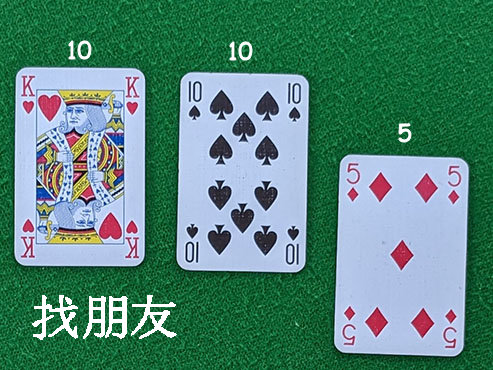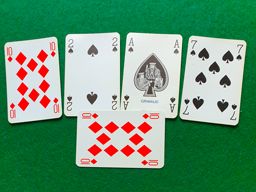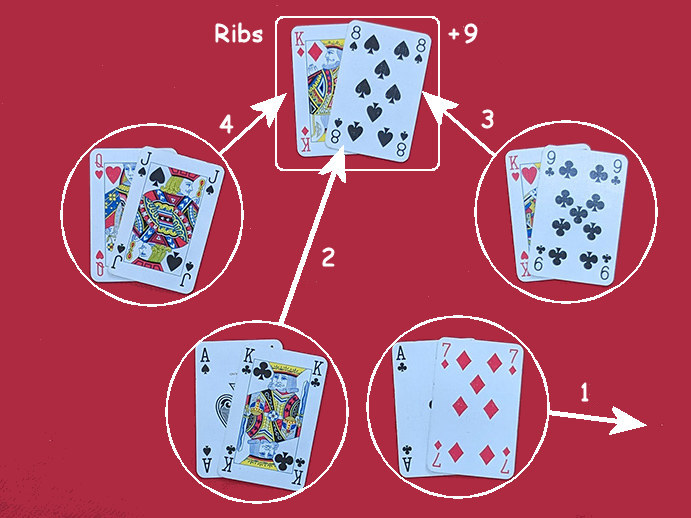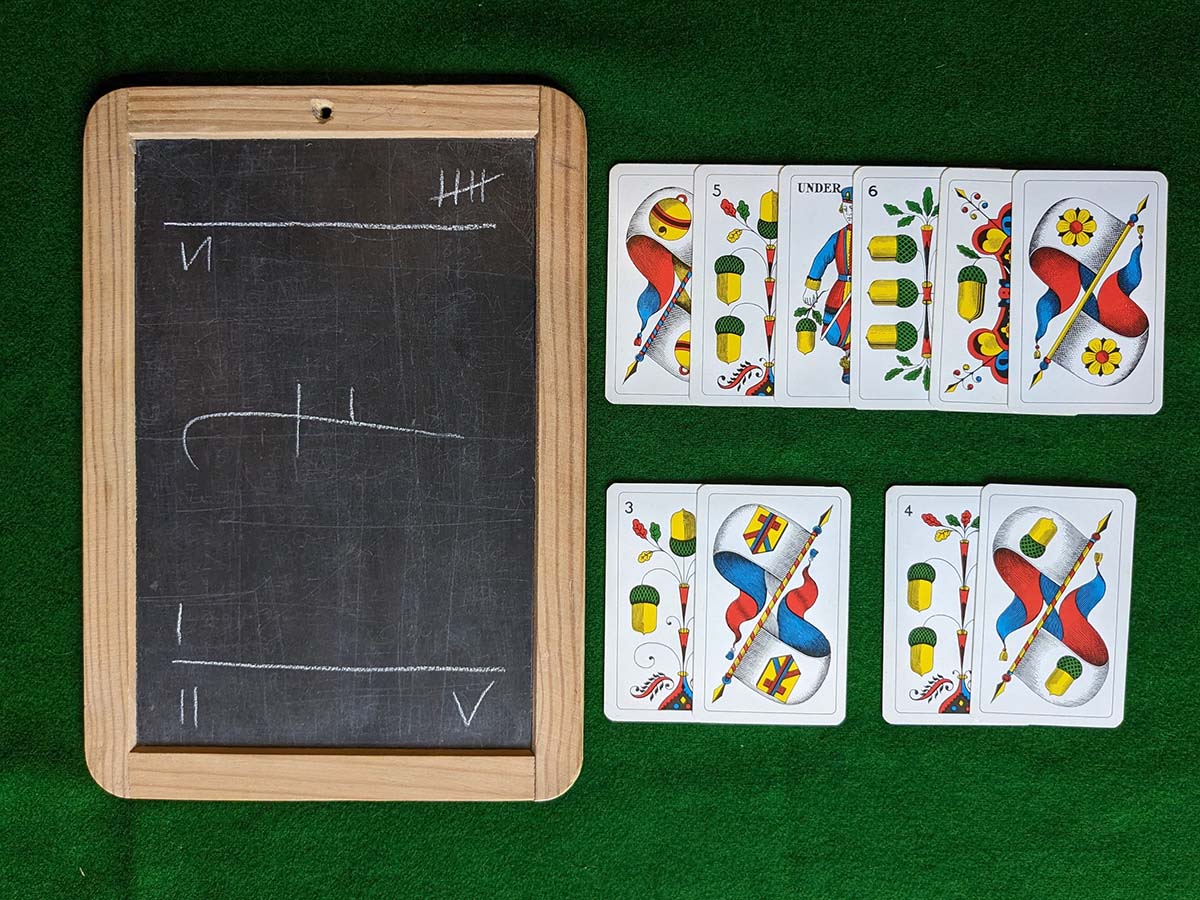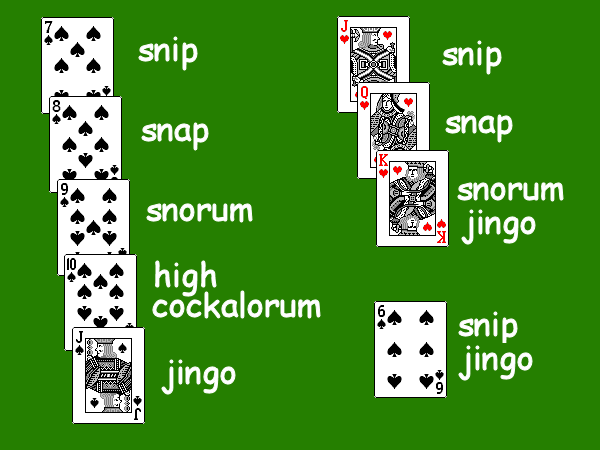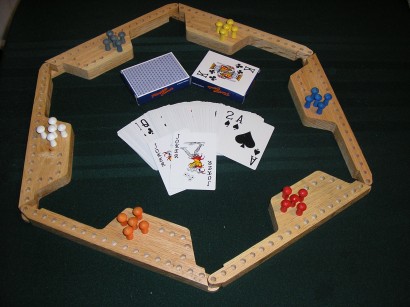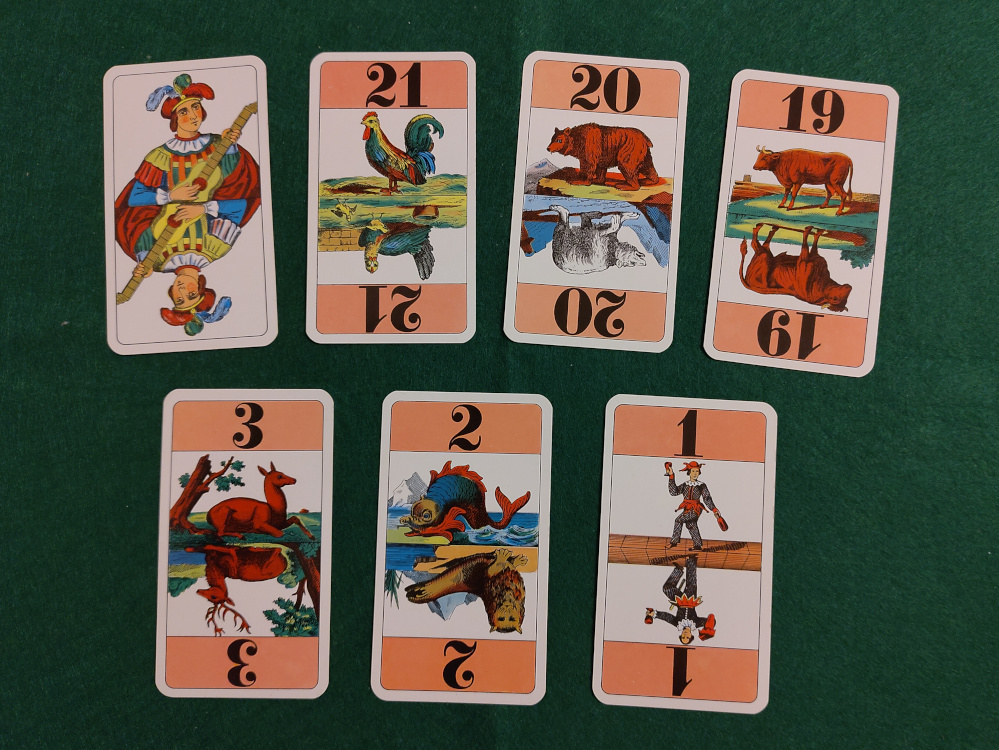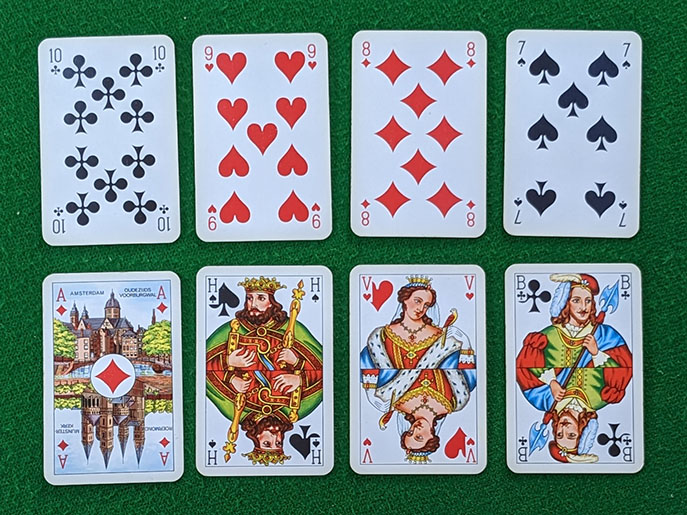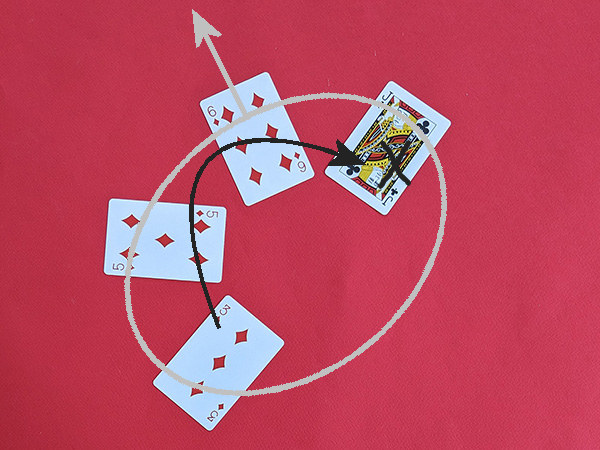Recommended Games for Six Players
A selection of some the best 6-player card games and domino games, recommended by the editor. For a longer list of traditional games, see the full 6-player game index. See also our recommended games for two, three, four and five players.
A Chinese trick-taking game for up to 12 players using multiple decks with jokers, in which sets of identical cards and sequence of sets can be played. In each deal the trump maker calls cards to form new teams.
This Swedish game for 2-6 players is a reverse form of Casino. There are penalty points for playing a card that captures a matching card or set of cards from the table, and a large penalty for clearing the table.
Unusual game for 4-10 players from Cleveland, Ohio in which cards are played two at a time, and before each trick players bid according to the number of points they think they can capture.
A Nordic game for up to 7 players in which the aim is not to win the last trick. When playing to a trick you must either overtake or play your lowest card.
A Swiss descendant of the medieval card game Karnöffel, for 4 or 6 players in partnerships.
Traditional round game for 4-8 players in which players try to get rid of their cards by playing them in ascending sequences of up to 5 cards in suit. There is a second version in which equal ranked cards are played.
North American partnership race game for 4, 6 or 8 players in which cards are used to move pegs or marbles around a (normally home-made) board.
An enjoyable Tarok game for 6 or 7 active players from the Upper Black Forest in Germany.
Chinese partnership trick-taking game for 4 or 6 players in which pairs and sequences of pairs can be played and the aim is to take Kings, Tens and Fives.
This six-player team version of Authors or Happy Families was probably invented in southern India. It demands a high degree of coordination between team members and an excellent memory.
Lively game from the Netherlands, often played for drinks. There are no trumps and the aim is to win the last of four tricks, or to bet that you can win it and convince the other players to fold.
In this unusual Punjabi game for 4-8 players, the aim is to get rid of cards. If anyone is unable to follow suit, the 'winner' of the trick has to pick up the cards played to that trick. There is scope for skill, but it also works well for a group that includes inexperienced card players.
The above are the editor's recommendations, but tastes differ and you may find other games you like more in the full index of traditional 6-player games. Further 6-player games can be found among the collection of invented games and on the commercial games page.
Explanation of symbols
Difficulty. Subjective assessment of the editor combining two factors: how difficult or complex the rules are, and how difficult it is to learn to play the game well.
Popularity. Games are ranked in order of the average number of people (actually different IP addresses) per month who visited the game rules page in the last 6 months. Top 10% get 5 hearts, next 10% 4 hearts, next 20% 3 hearts, next 30% 2 hearts, bottom 30% 1 heart. (The top 6 games under this ranking are also listed on the home page as 'most popular games'.)
Trend. The number of visitors in the most recent month are compared with the average per month over the preceding five months, and the significance of the change is estimated using a statistical technique described here. The pages are then ranked in order from most significant increase down to most significant decrease. The top 10% are given 5 flames, the next 20% 4 flames, the middle 40% 3 flames, the next 20% 2 flames and the bottom 10% 1 flame. (The 6 games or pages with the most significant increase are also listed on the home page under 'recent interest'.)
The stats and popularity/trend ratings are updated at the beginning of each month, and the order in which the recommended games are listed on this page is shuffled randomly once a week so as not to give undue weight to any one recommendation.
Notes on six-player games
With a group of six players or more there is a risk that players may become bored while waiting for their turn. Therefore it is good to choose a game the moves quite fast, or where players have something to think about while other players are taking their turns. There are several possible formats.
- Some are round games, also playable by more or fewer players, normally with each person playing for themselves.
- Some are team games played between two equal teams of three players, normally sitting alternately with each player between two opponents, or more rarely between three teams of two with each player sitting opposite their partner.
- Some are alliance games where the teams may be unequal: three against three, two against four or one against five, with the configuration changing from deal to deal and determined by bidding or by the location of certain cards.
- There is also the possibility of playing a game that is specifically for five-players with players taking turns to sitting out, normally when it is their turn to deal. Some five-player games, such as Mighty, even incorporate specific mechanisms to allow a player to drop out when there are 6 at the table.
